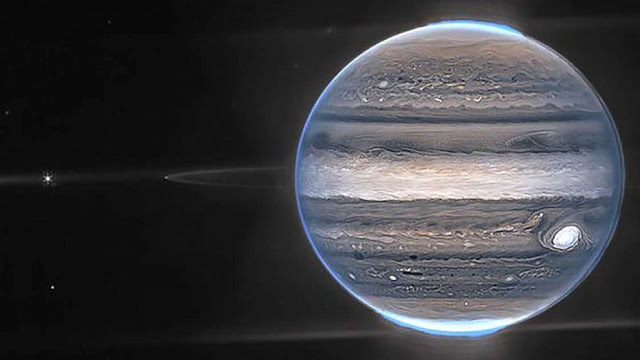There's a once-in-a-lifetime encounter happening right now for everyone who is captivated by things in the sky – and you won't want to miss it. It's not a star or a meteor; it's something far more unusual: Jupiter. Here's all you need to know, including when you should mark your calendar.
What is Jupiter doing in September?It's not uncommon to see additional planets in the night sky. But we usually observe them through a telescope. However, we're in for a special surprise this month. According to EarthSky.org, Jupiter will be closer to Earth than it has been in more than 70 years.
Jupiter will rise in the Eastern sky after sunset this month and will be visible until just before sunrise. And because it's so close to Earth, we'll be able to see it much better.
When the Earth is between Jupiter and the Sun, Jupiter is said to be in "opposition." When a planet is opposed to Earth, it appears larger than life.
According to EarthSky, this occurs because the planet's complete disc is lighted, the Earth is as close to it as it will ever be, and the planet is visible for longer because it rises at sunset and sets at sunrise. This creates the ideal conditions for the finest Jupiter look in 70 years.
In September, how can you view Jupiter?
For the entire month of September, you can catch a glimpse of Jupiter after sunset.
"Look to the eastern sky about two hours after sunset over the next few weeks, and you easily see bright Jupiter rising in the eastern sky," Forbes explains.
In September, when is the ideal time to observe Jupiter?
While the planet will be visible throughout the month, EarthSky recommends checking it out on September 26 if you're short on time.
Jupiter will come closest to Earth on September 26th, when it will be "367 million miles or 591 million kilometres or 33 light minutes from Earth," so mark that day on your calendars.
TimeandDate can help you determine the optimum time to observe Jupiter from where you live.
The next magnificent planetary sky show will be on December 8, 2022, when Mars is in opposition.
Reference(s): EarthSky

